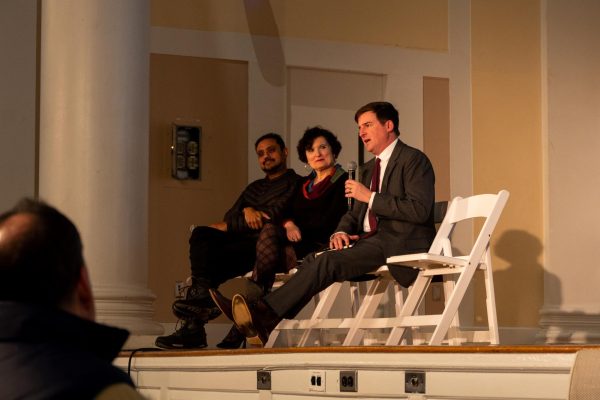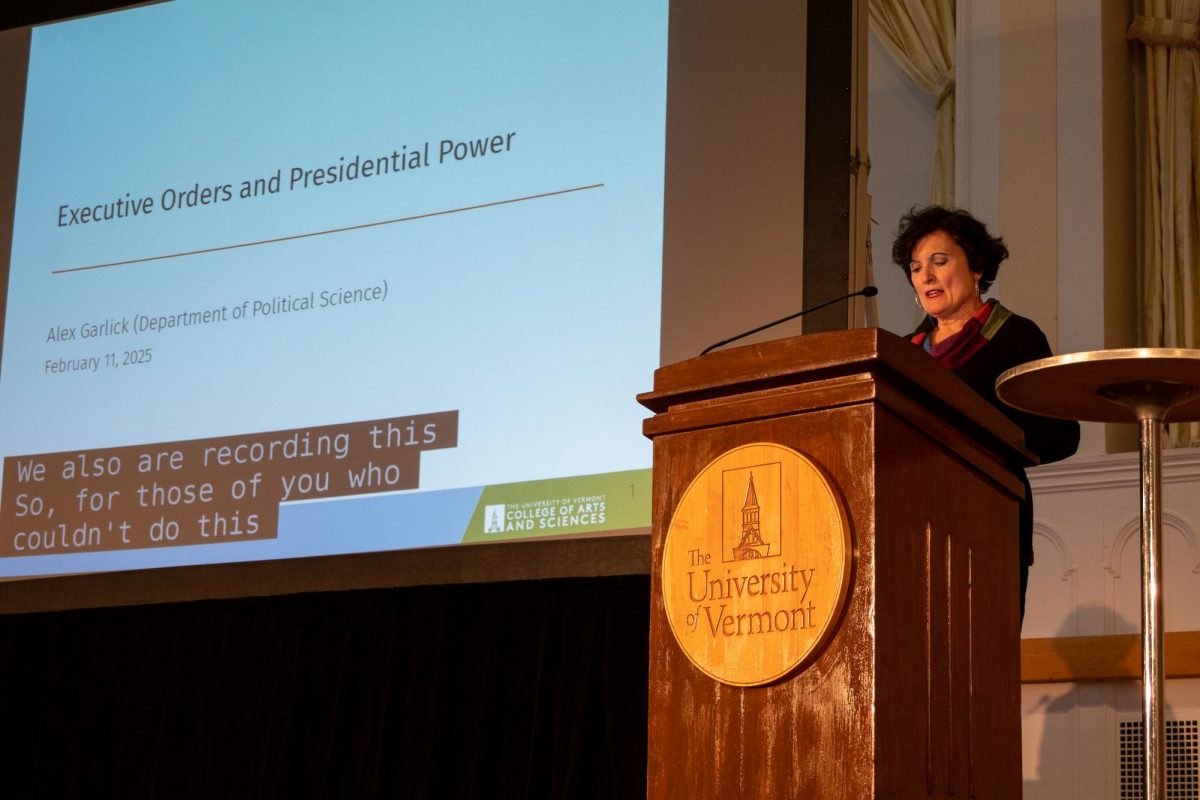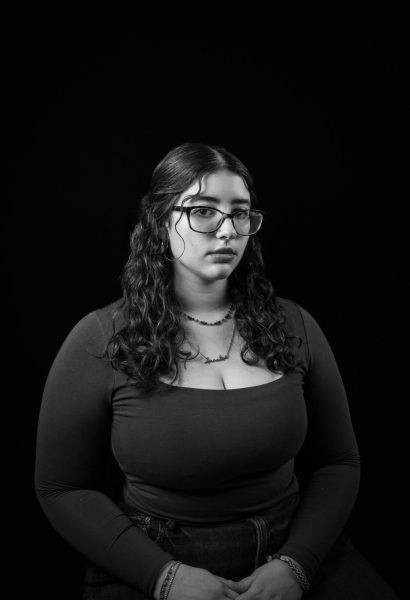Uncertainty surrounds UVM’s response to President Donald Trump’s recent executive orders, as the implications for Diversity, Equity and Inclusion programs, gender-affirming care and the rights of student protestors at UVM are yet unknown.
On Tuesday, Feb. 11, UVM hosted a faculty panel in the Ira Allen Chapel in response to the barrage of executive orders. University officials discussed the orders’ effects on University programs, including research grants, immigration and DEI programs.
“Each time when we send out a message, we’re saying we’re keeping track or monitoring, but there isn’t really much that we can say, because there’s been no actions,” said Interim President Patricia Prelock at the event.
UVM understands the concerns the community has over recent executive orders, according to a Feb. 5 message to the UVM community from Interim President Patricia Prelock and Acting Provost Linda Schadler.
“Be assured that the university remains committed to supporting our students and employees and ensuring that our values and mission are at the forefront of our decisions,” the message stated.
The administration had to face the executive orders as they came out, and are going to continue to adapt to them, Prelock said.
UVM is a part of the Association of Public and Land-Grant Universities and the American Council on Education, both of which work alongside the University to respond to federal actions that affect campus, she said.
Prelock said the Grossman School of Business’ Inclusive Excellence Action Plan, which seeks to foster an inclusive environment, among another other measures, is not being affected by any executive orders.
The Inclusive Excellence Action Plan was created in response to the Supreme Court decision in Students for Fair Admissions v. Harvard, 2023, which ruled that affirmative action was unconstitutional. As a result, the administration is currently in the midst of rethinking their approach to Diversity, Equity and Inclusion.
Kirk Dombrowski, vice president for research, said there has been no termination of research grants thus far.
Sharon Paulson, vice president of legal affairs and general counsel, said there has been no pauses on student aid and that the University will continue to stay true to its values, while also following law and decisions made by the Supreme Court.
“[Knowing] what’s going on now should not impact individual students’ ability to stay safe,” Paulson said at the event.
On a different front, it is too early to know the exact effects of Trump’s Jan. 28 order, which aims to limit gender-affirming care for individuals under the age of 19, on UVM’s gender-affirming care services, said Sharon Glezen, physician at Student Health Services.
“We at [the Center for Health and Wellbeing] are deeply committed to the ongoing care of members of the trans and gender-diverse community and are working to better understand any possible implications of recent Executive Orders on our work of providing ongoing gender-affirming care,” Glezen stated in a Feb. 4 email to the Cynic.

(Annalisa Madonia)
The slew of executive orders have potential ramifications for students protestors as well. A Jan. 30 executive order threatens to revoke the student visas of international students who engage in actions deemed “anti-semitic,” including participating in pro-Palestinian demonstrations.
Jamie McGowan, executive director of international partnerships and programs, and Emma Swift, director of the Office of International Education, both declined a Cynic reporter’s requests for an interview, instead referring them to University spokesperson Adam White.
“The university follows the law, and existing university policies will continue to guide our actions and inform our understanding of, and response to, this complex and ever-changing situation,” White wrote in a Feb. 5 email to the Cynic.
Tom Sullivan, professor of political science and former UVM president, said the Jan. 30 executive order is unlikely to go into effect because it may violate First Amendment rights and Equal Protection laws.
This executive order, like its relatives, has been challenged in federal court, Sullivan said.
“Almost every single one of these major executive orders […] there has been a federal lawsuit filed within a day or two or three from the signing of the executive order,” he said. “In almost every case a federal judge has stepped in and issued a temporary restraining order to stop the enforcement of the executive order.”
These executive orders are alarming for research institutions and universities because failure to comply could result in the loss of federal funding, Sullivan said.
“The hook is that if you violate federal statute, public or private, they will take any federal money away from you,” Sullivan explained. “Many universities need federal money [and] student loan money coming through the university from the federal government.”
Joe Murphy, a student representative from UVM Students for Justice in Palestine, said the group is not frightened by this recent executive order.
Murphy would not confirm whether or not there are members of UVM Students for Justice in Palestine who are international students.
The group has been taking measures to ensure that their members, international or not, are well-informed to defend themselves legally from the recent executive orders and whatever comes next, Murphy said.
“We’re really just familiarizing ourselves with things like know-your-rights trainings,” he said. “[We are] tapping as much legal informational resources as possible so that we know our rights and can most effectively mobilize in defense of anybody we need to.”
At the Feb. 11 event, a panel of faculty and administration presented information regarding executive orders and some ideologies being threatened at UVM and others being enforced at the federal level.
The discussion focused on the executive orders concerning immigration, DEI programs and research grants.
Alex Garlick, political science professor, said executive orders tend not to outlive a presidency and are not an indication of political strength. Rather, they are an attempt to create political chaos, he said.
“Leaning on executive orders does not really threaten [research or student aid] in the long term, as much as creating chaos and kind of political confusion,” Garlick said.
Erica Caloiero, vice provost for student affairs, said UVM should respond to the current political turmoil by focusing on continuing to build community.
“We need to focus on what is real,” she said. “We need to ask good questions. We need to listen to people who have expertise and people who are impacted.”
U.S. Sen. Peter Welch (D-VT) and Rep. Becca Balint (D-VT) sent in pre-recorded videos encouraging UVM students to fight for what they believe in and to protect the values of the school.
“Don’t be overwhelmed,” Balint said. “Turn your anger and frustration and fear into a commitment to fight for this country and all that belongs deeply.”









